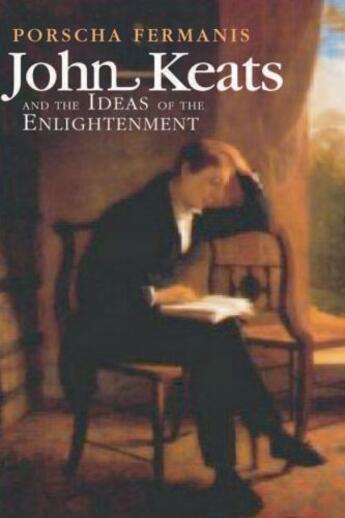Des idées de lecture pour ce début d'année !
Passionné(e) de lecture ? Inscrivez-vous
gratuitement ou connectez-vous pour rejoindre la
communauté et bénéficier de toutes les fonctionnalités du site !

John Keats is generally considered to be the least intellectually sophisticated of all the major Romantic poets, but he was a more serious thinker than either his contemporaries or later scholars have acknowledged. This book provides a major reassessment of Keats's intellectual life by considering his engagement with a formidable body of eighteenth-century thought from the work of Voltaire, Robertson, and Gibbon to Hutcheson, Hume, and Smith.The book re-examines some of Keats's most important poems, including The Eve of St Agnes, Hyperion, Lamia, and Ode to Psyche, in the light of a range of Enlightenment ideas and contexts from literary history and cultural progress to anthropology, political economy, and moral philosophy. By demonstrating that the language and ideas of the Enlightenment played a key role in establishing his poetic agenda, Keats's poetry is shown to be less the expression of an intuitive young genius than the product of the cultural and intellectual contexts of his time.
Il n'y a pas encore de discussion sur ce livre
Soyez le premier à en lancer une !

Des idées de lecture pour ce début d'année !

Si certaines sont impressionnantes et effrayantes, d'autres sont drôles et rassurantes !

A gagner : la BD jeunesse adaptée du classique de Mary Shelley !

Caraïbes, 1492. "Ce sont ceux qui ont posé le pied sur ces terres qui ont amené la barbarie, la torture, la cruauté, la destruction des lieux, la mort..."